16 Assassin's Creed Games, Ranked Best to Worst
The best Assassin's Creed games cover a variety of historical periods
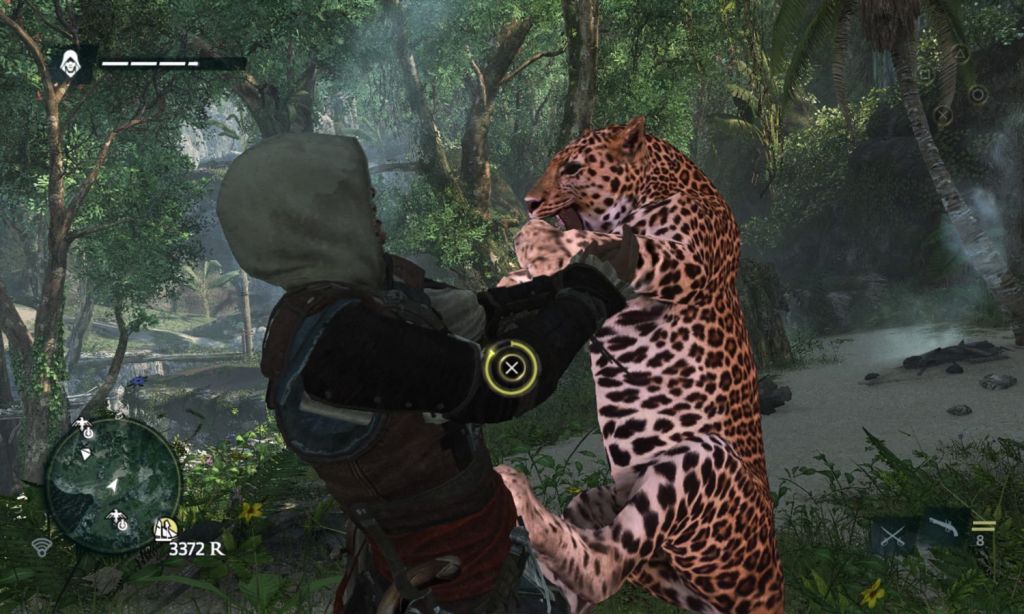
We wanted to reflect on the best Assassin's Creed games — and the worst ones. Assassin's Creed Valhalla is just over the horizon, and we're curious to see how it will stack up to previous entries. More than a decade into the Assassin's Creed series, it's safe to say the franchise has had some good times, as well as some definite low points. It's a franchise where nothing is true, and everything is permitted, after all. After much soul-searching, we've come up with this ranking of every core AC game, from best to worst — but if you think we're dead wrong, let us know in the comments!
1. Assassin's Creed IV: Black Flag (2013)
Why you can trust Tom's Guide
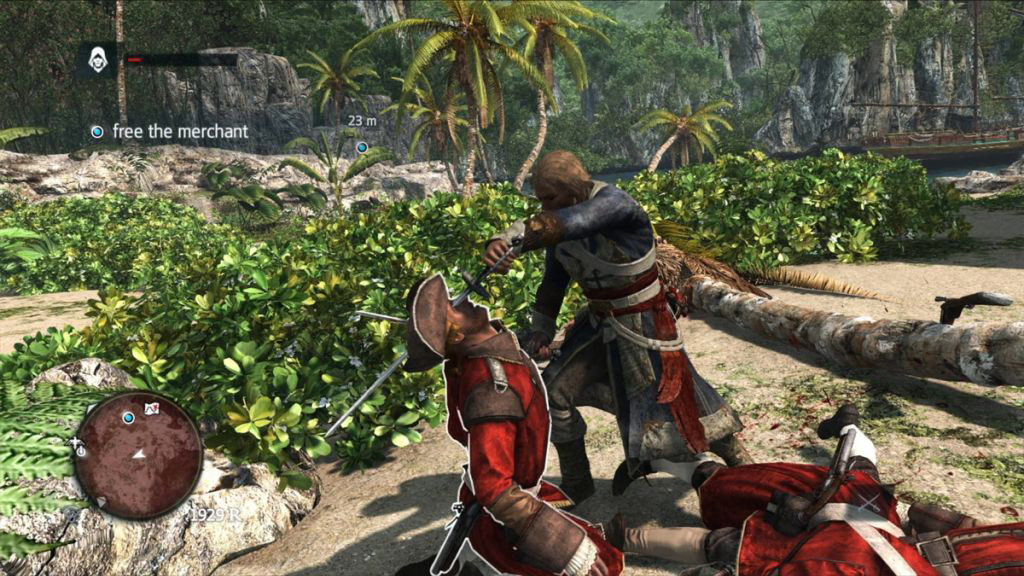
Assassin's Creed IV: Black Flag took the series from dry land to the Caribbean seas, and the game was much better for it. Combining the traditional land-based missions with naval battles and a genuinely interesting story, Black Flag is easily the best game in the series to date. Even though it launched during that awkward end-of-console-generation period, landing on both last-gen and current-gen systems, Black Flag delivered the goods in a way we haven't quite seen since.
2. Assassin's Creed: Brotherhood (2010)
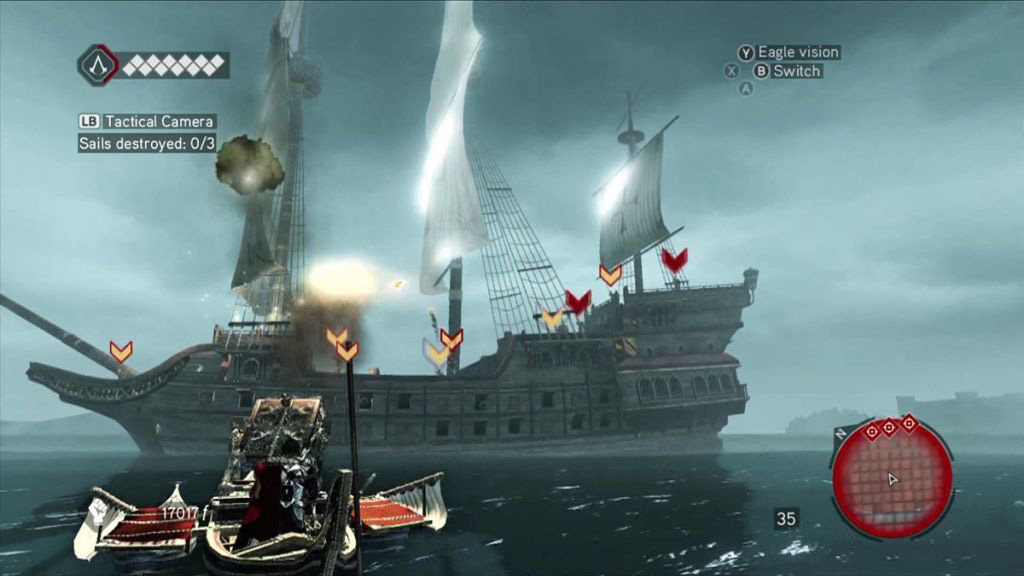
If Assassin's Creed was the extended tech demo on which the franchise was founded, Assassin's Creed II is where it found its calling — Assassin's Creed: Brotherhood honed in on what made II such a great game. This sequel continued Ezio Auditore da Firenze's tale in gorgeous Renaissance-era Rome, while introducing tighter combat, gadgets made by Leonardo da Vinci himself, and an engaging system to recruit novice Assassins. As if having a top-notch single-player experience weren't enough, Brotherhood also introduced multiplayer to the franchise, and the developers managed to implement it without sacrificing anything from Ezio's main campaign.
3. Assassin's Creed Origins (2017)
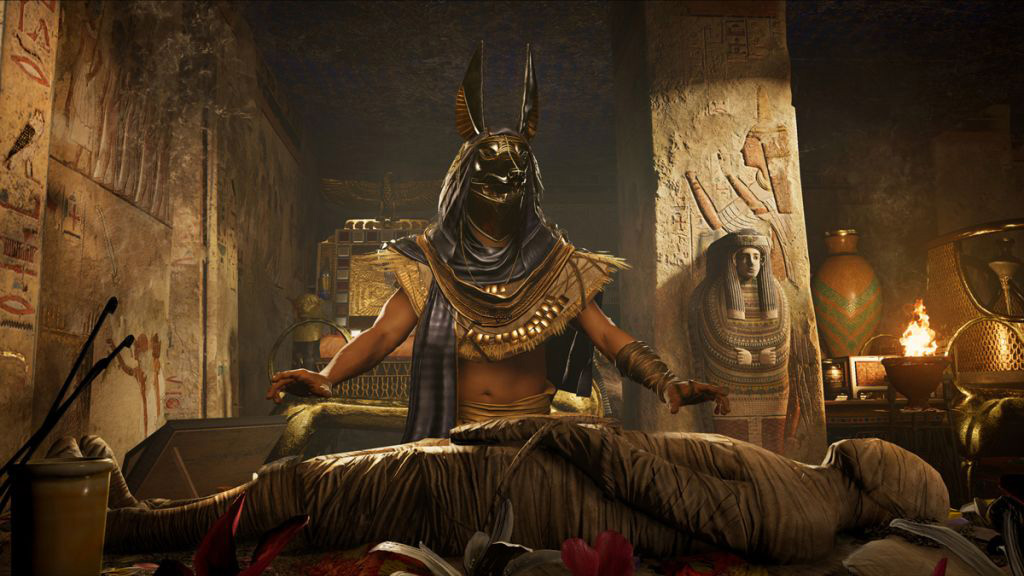
Assassin's Creed returned this year after a two-year break, and it's clear that the time off has been good for the decade-old series. The Ancient Egyptian setting in Origins is vast but dense, as well as unlike anything we've seen from the series before. (Previous entries have mostly kicked around in Europe, with only occasional jaunts outside those borders.) Hand-to-hand combat is more precise, while the often-annoying stealth objectives are more forgiving. There's a lesson to be learned here about annual releases, and other publishers should take note: It's better to take a year off than to watch a flagship series slowly sink into mediocrity.
4. Assassin's Creed II (2009)
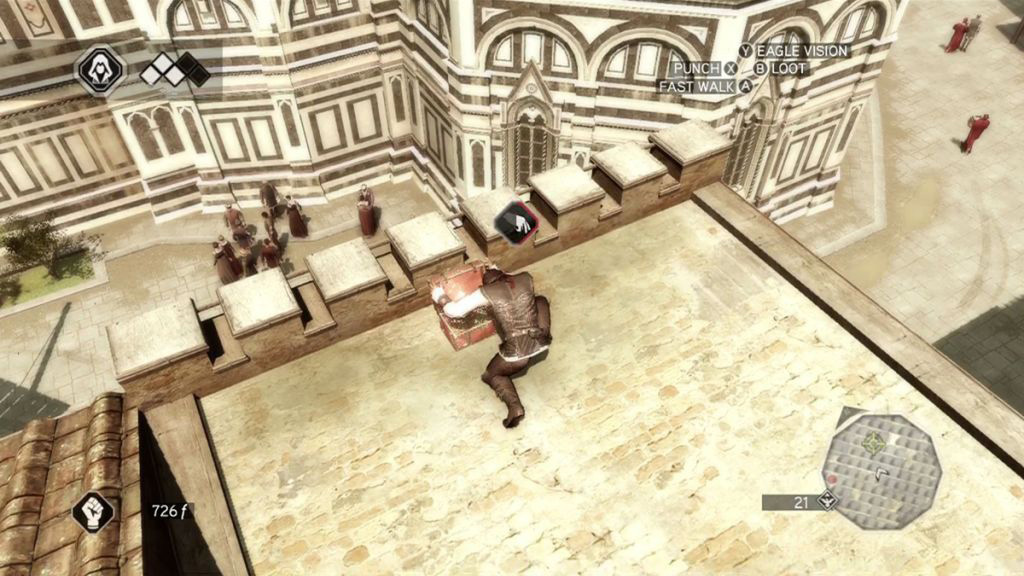
Part of the reason Assassin's Creed: Brotherhood is so good is because it built on the very solid foundation of Assassin's Creed II. This sequel was miles ahead of the first game. Before the series became an annual staple, Ubisoft took advantage of a two-year gap to make big improvements. The Assassins' trademark Eagle Vision was thankfully released from its first-person confines, making it much more dynamic and useful. Combat and stealth were both dramatically better, too. Fans typically recommend this game as a starting point for new players, and it's not hard to see why.
5. Assassin's Creed Syndicate (2015)
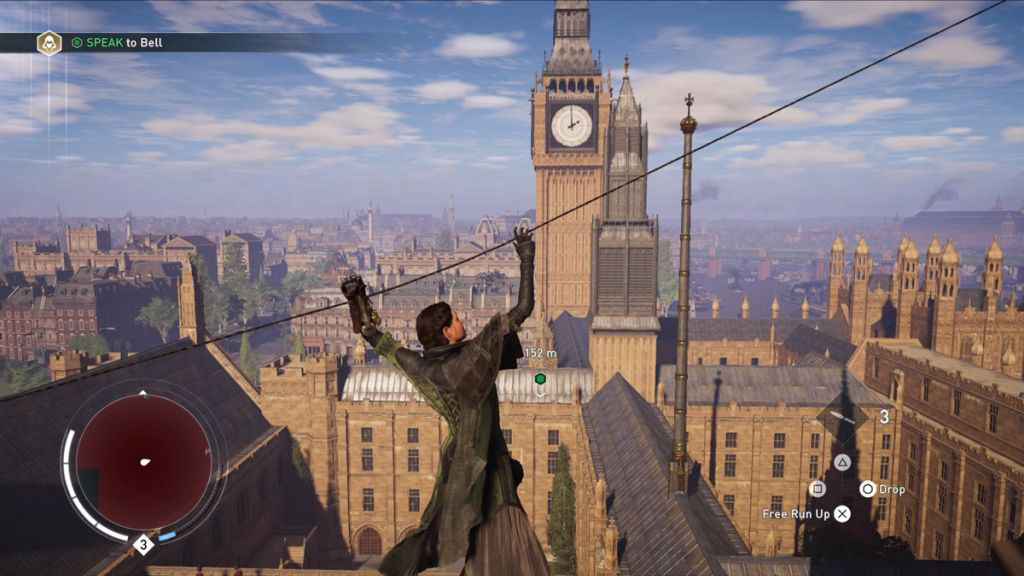
Right before going on hiatus, Ubisoft bounced back from the disastrous Assassin's Creed Unity with the solid Assassin's Creed Syndicate. While it didn't exactly break new ground, Syndicate did introduce a neat dual-protagonist system and let us play as a female assassin for the first time in a core Assassin's Creed title. Victorian London was a pleasant (if overused) locale to explore, and there were plenty of meaty objectives and side quests. Plus, you could steal horse-drawn carriages, kind of like an old-timey Grand Theft Auto.
6. Assassin's Creed Odyssey (2018)
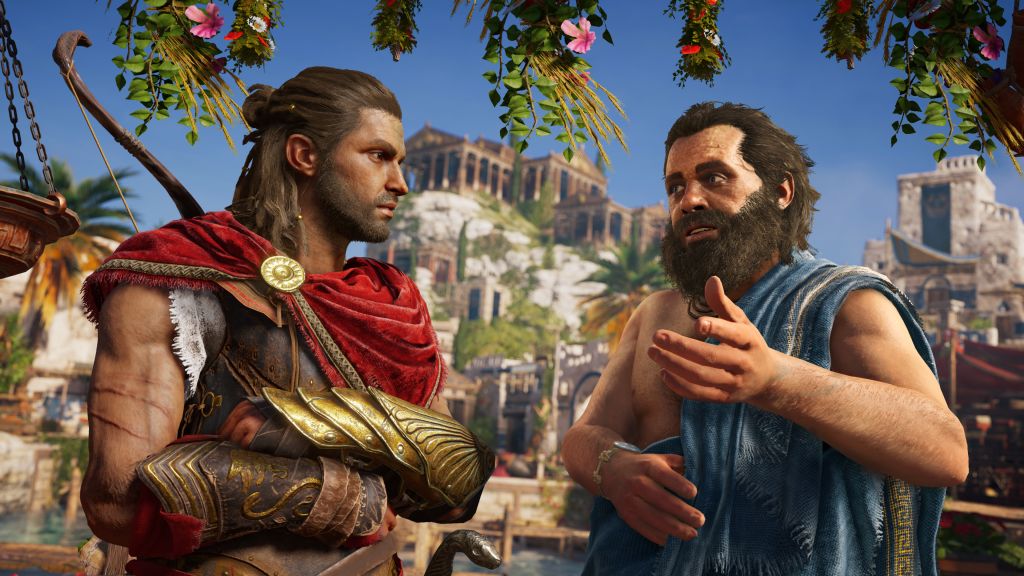
Assassin's Creed Odyssey is even bigger and more ambitious than Assassin's Creed Origins — but it's not necessarily better. This game casts you as a Spartan mercenary who discovers that a deadly cult is pulling the strings behind the Peloponnesian War. By discovering the truth behind the Cult of Kosmos, you can potentially reunite your wayward family and bring peace to the Greek world. Odyssey has a few great ideas, such as letting players pick either Alexios or Kassandra as their protagonist, and adding an array of special melee moves, from shield grabs to Spartan kicks. But the game is so big, it can feel aimless, and the Assassin's Creed lore connections are sometimes tenuous. It's fun, but not the best the series has to offer.
7. Assassin's Creed III (2012)
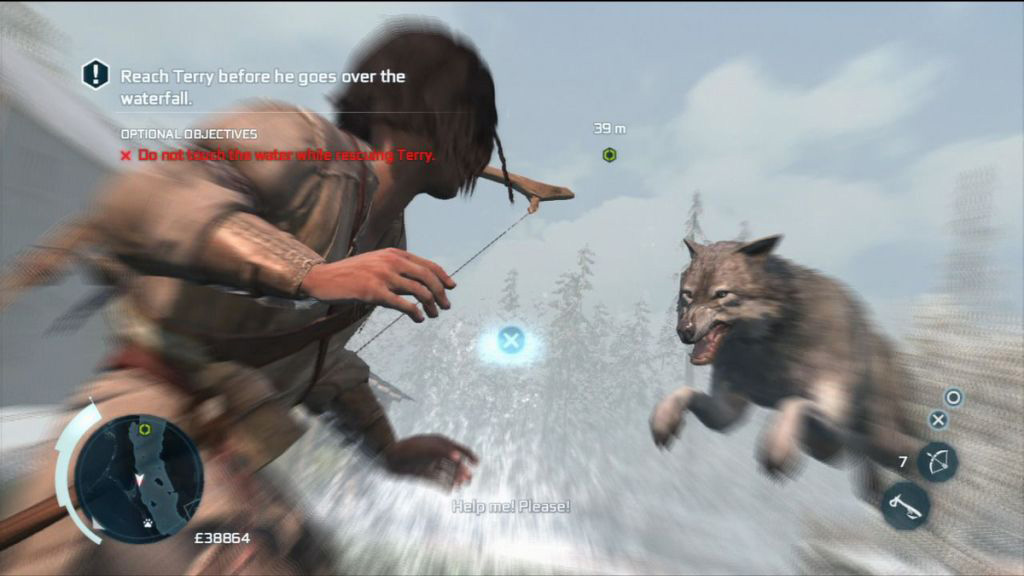
Assassin's Creed III looked really impressive when Ubisoft showed it off at E3 2012, but its actual release a few months later was somewhat lackluster. The story had so much promise, featuring a half-Native American son of a Templar, exploring the early American colonies during the Revolutionary War. The actual narrative had some seriously questionable moments, though. While not a top-tier game in the series, Assassin's Creed III was still mostly fun, and it gets bonus points for introducing the naval combat that Ubisoft later perfected in Black Flag.
8. Assassin's Creed: Rogue (2014)
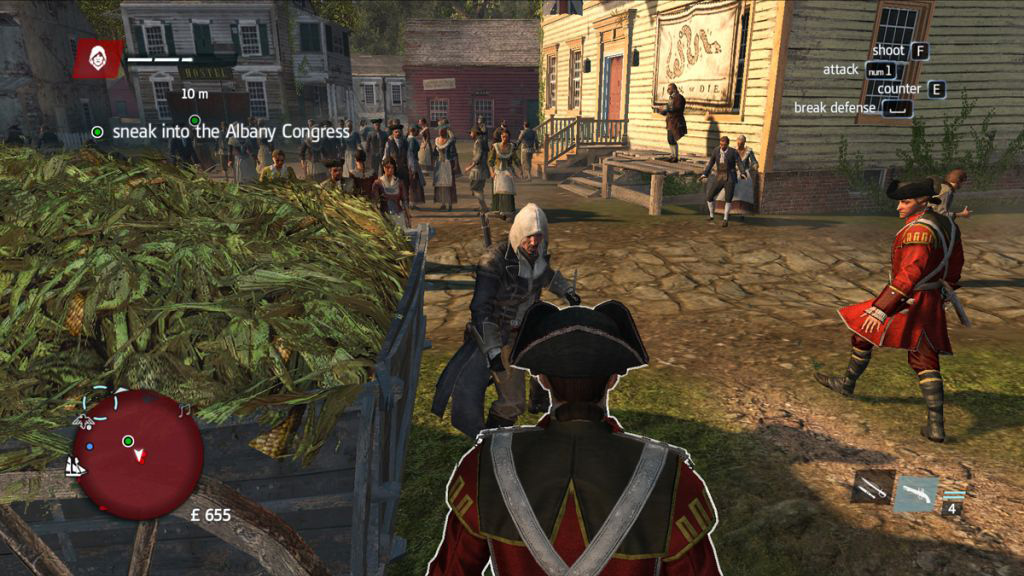
Ubisoft released two Assassin's Creed games in 2014, and Rogue was the last-gen consolation prize for gamers without shiny new Xbox Ones or PS4s. Despite this, it was still the better AC that year, mostly because it copied and pasted the series' best mechanics. On the other hand, it didn't add anything special of its own, with the exception of a Templar protagonist. Rogue was a fun romp through the North Atlantic, aided by tight naval battles, but the story left much to be desired. After years of playing as Assassins, it was hard to justify suddenly hunting them down and killing them.
9. Assassin's Creed III: Liberation (2012)
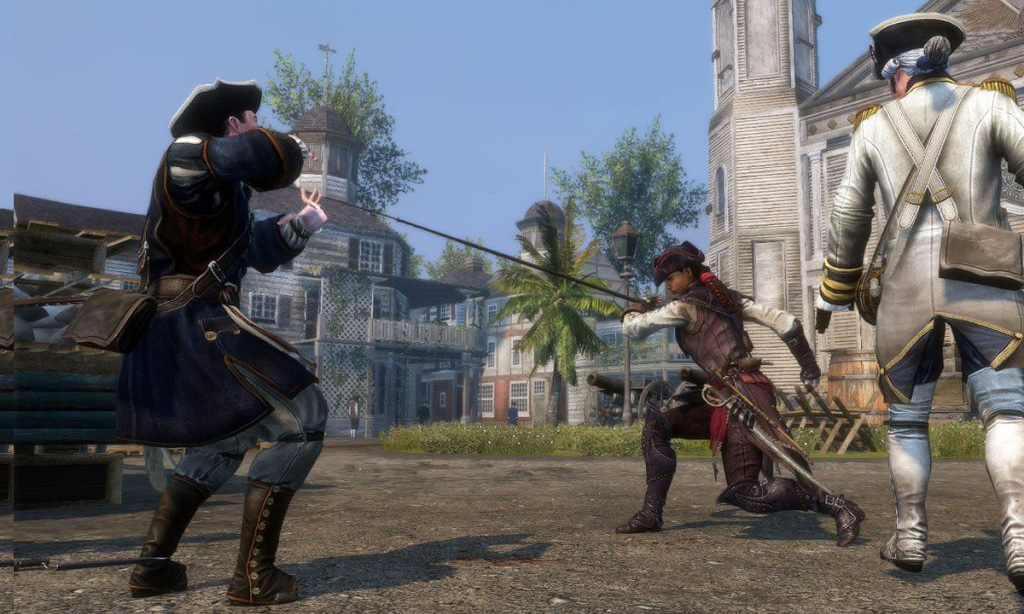
Liberation was Ubisoft's attempt to make an Assassin's Creed for the under-supported PlayStation Vita, and… it tried. It really did. The game introduced Aveline, the first female protagonist in the series (and a person of color, at that). New Orleans served as a beautiful locale to explore, but unfortunately, there just wasn't enough interesting content to fill it, and the story felt aimless. Liberation had some high points, but in the grand scope of things, it's one of the more forgettable games in the series.
10. Assassin's Creed Chronicles (2015 – 2016)
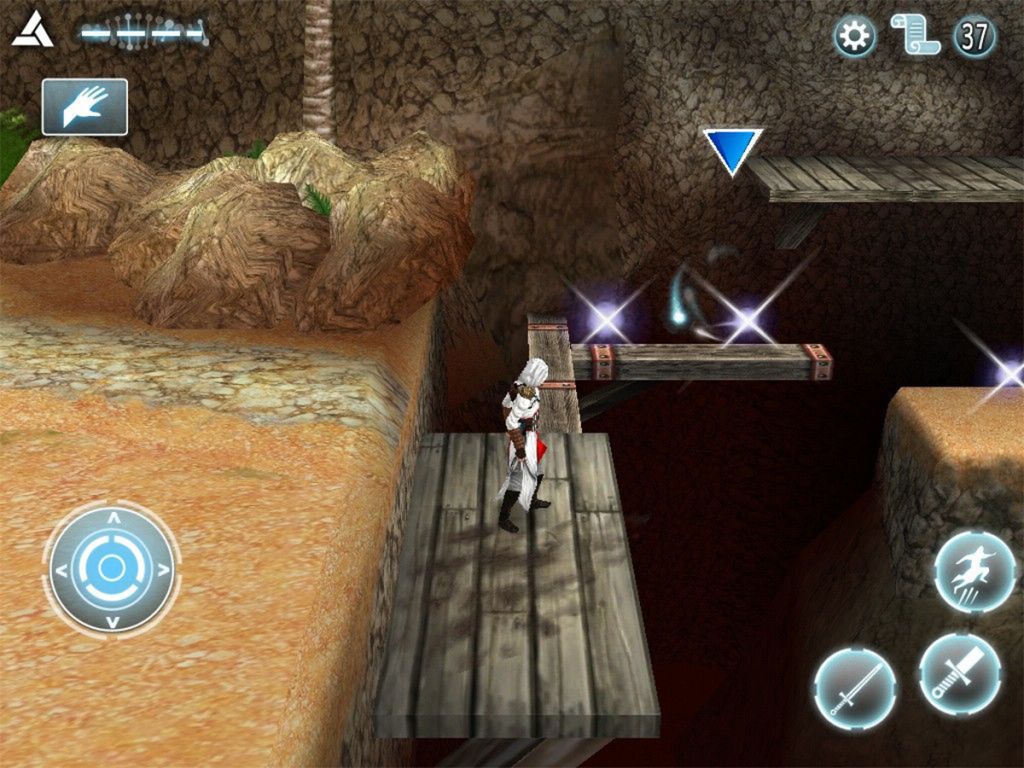
The three Assassin's Creed Chronicles games were something of an experiment on Ubisoft's part. Released in 2015 and 2016, the three games took place in China, India and Russia, eschewing the franchise's massive open-world gameplay for a 2.5D world with a distinct art style. As far as side-scrolling platformers go, the Chronicles spinoffs weren't bad, but they were ultimately a bit too shallow. With so many terrific indie side-scrollers released around the same time, there really wasn't any need to play watered-down versions of the Assassin's Creed games.
11. Assassin's Creed (2007)
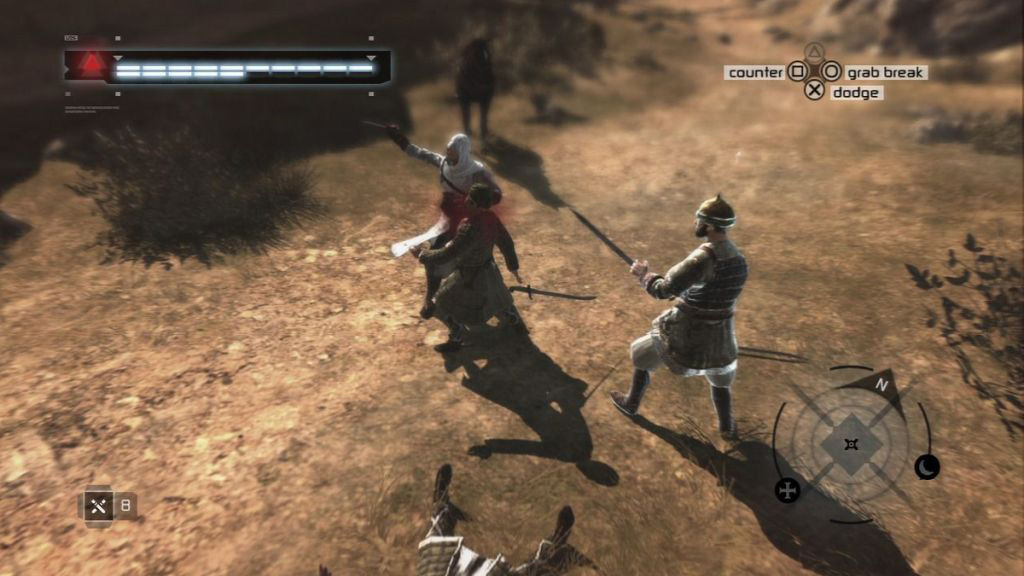
Looking back, 2007 was one of the best years for video games in modern history. Titles like Portal, BioShock, Persona 3 and Super Mario Galaxy are still remembered fondly, but gamers regard the first Assassin's Creed as more of a tech demo than Game of the Year material. The title laid down a lot of ideas that Ubisoft later expanded upon to make the series great, but it was rather repetitive and failed to live up to the hype that its years in development had created.
12. Assassin's Creed: Bloodlines (2009)
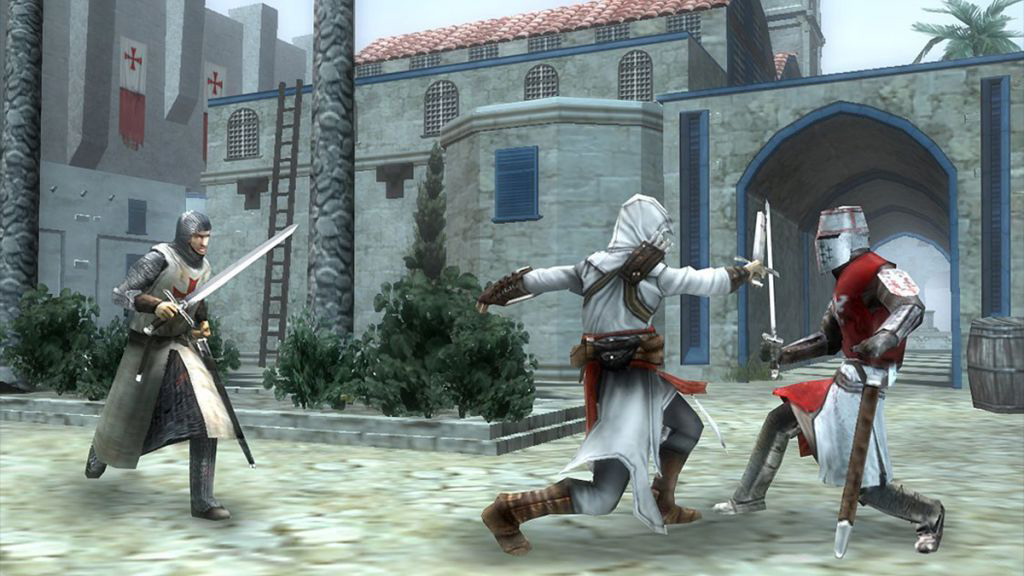
Bloodlines attempted to bridge the gap between the first two games in the Assassin's Creed series — a rather ambitious goal for a PSP title. Ultimately, Sony's first handheld wasn't a good fit for the scope of an Assassin's Creed game, due to the system's technical limitations. Bloodlines ended up being a pretty-but-generic game with lackluster mechanics and a repetitive story. That said, it wasn't the worst handheld Assassin's Creed game released that year….
13. Assassin's Creed II: Discovery (2009)
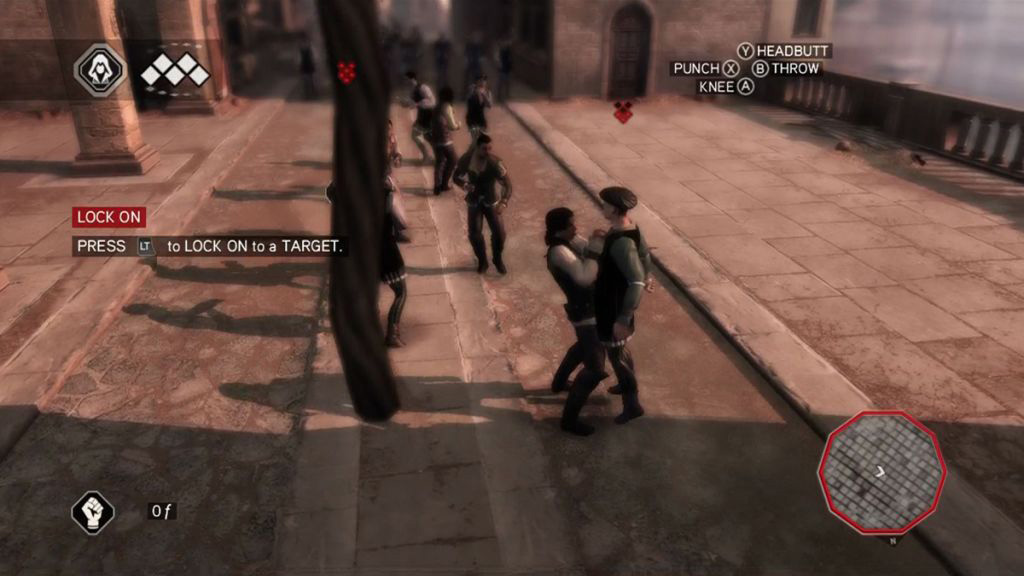
.… No, that dubious honor goes to Assassin's Creed II: Discovery for the Nintendo DS (and later iOS). Attempting to display photorealistic graphics on a handheld with limited power resulted in the game looking ugly as heck: all muddy textures and low-res backgrounds. The gameplay itself was generic side-scrolling platforming, and Discovery put limitations on how players could approach missions. Each mission dictated whether stealth, combat or (ugh) a prolonged chase was necessary. It seemed OK at the time, but in retrospect, Discovery is best left undiscovered.
14. Assassin's Creed: Revelations (2012)
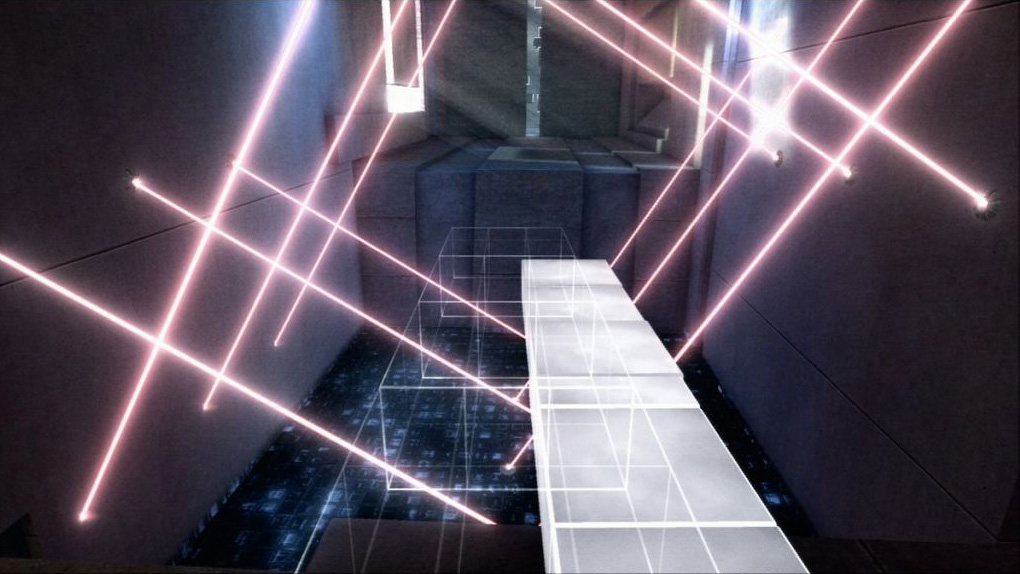
The first two games in the Ezio trilogy were great. The last one took a very sharp turn. Revelations took our Italian Assassin out of the beautifully crafted city of Rome, and dropped him in Constantinople so he could learn more about original Assassin Altair. The Templars felt more like annoying pests than fearless enemies, as they stalked Ezio and reclaimed territory — the latter of which made a previously fun mechanic into a chore. Then there were the tower defense sequences, which were decidedly not fun. All in all, Revelations was a sad way for the Ezio trilogy to meet its end.
15. Assassin's Creed: Altair's Chronicles (2008)
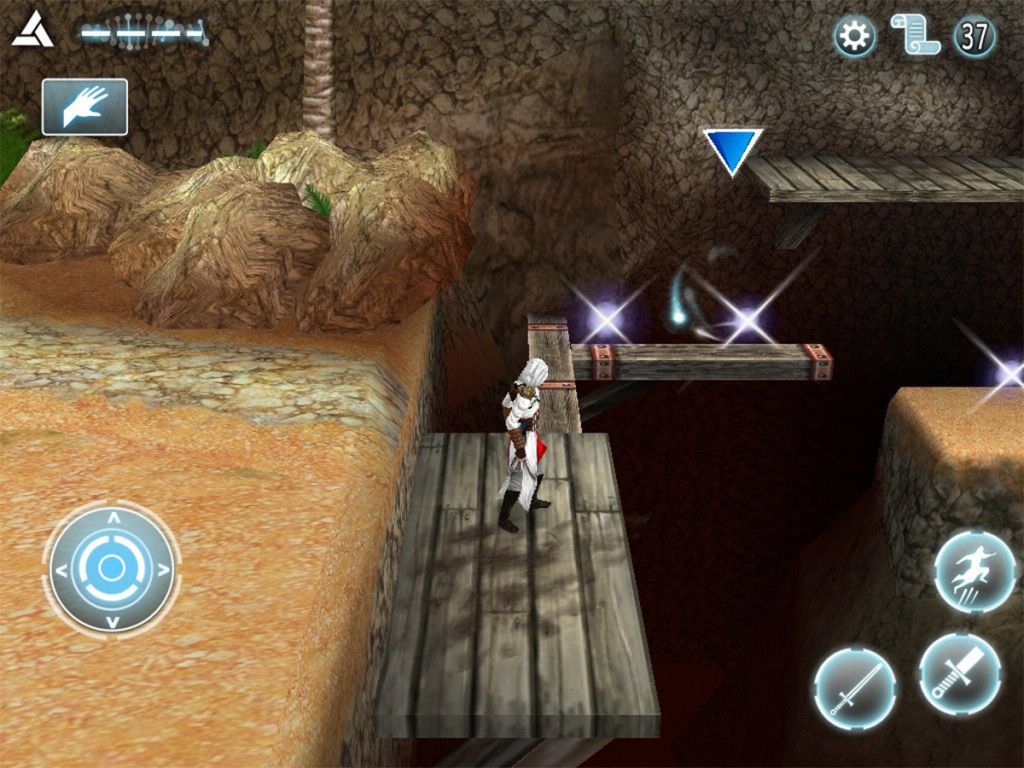
Back in 2008, when the Nintendo DS was selling like hotcakes, it was just a good business move to cash in on a series with a handheld spinoff. That led to a lot of DS games that were just pale imitations of their console counterparts, and Altair's Chronicles was merely one example. This prequel to Assassin's Creed had to be scaled down considerably. Instead of open-world gameplay, it utilized touch-screen mini-games, oversimplified combat and only a vague notion of stealth. So, basically, it wasn't really an Assassin's Creed game at all.
16. Assassin's Creed: Unity (2014)
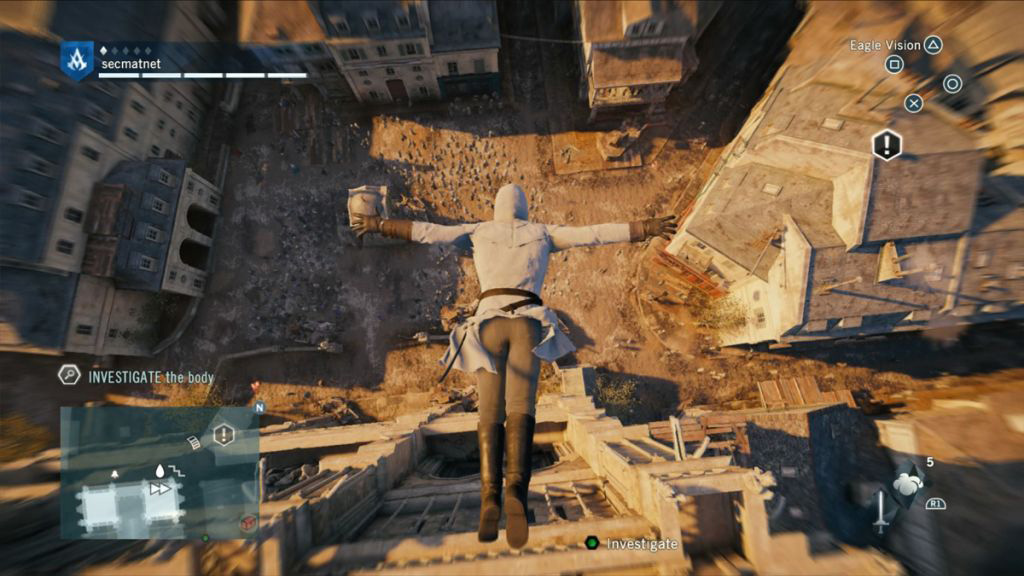
It's no surprise that Unity is at the bottom of this list; its glitches have become the stuff of legend. Unity was supposed to be a grand affair, Ubisoft's first Assassin's Creed built from the ground up for a new console generation. Instead, it launched as a technical mess. Freezing, frame-rate issues and graphical hiccups plagued Unity, but even after multiple patches, one fact remained: The game itself was dull and uninspired. Previews jokingly compared it to Les Misérables because of the French Revolution setting, but the only thing that Unity got right there was the misery.
Get instant access to breaking news, the hottest reviews, great deals and helpful tips.

Sarah is a writer, editor and consultant with a focus on video games and pop culture. Alongside Tom's Guide she has contributed to publications including IGN, Polygon, Variety, NBC News, Nerdist and Ars Technica.
